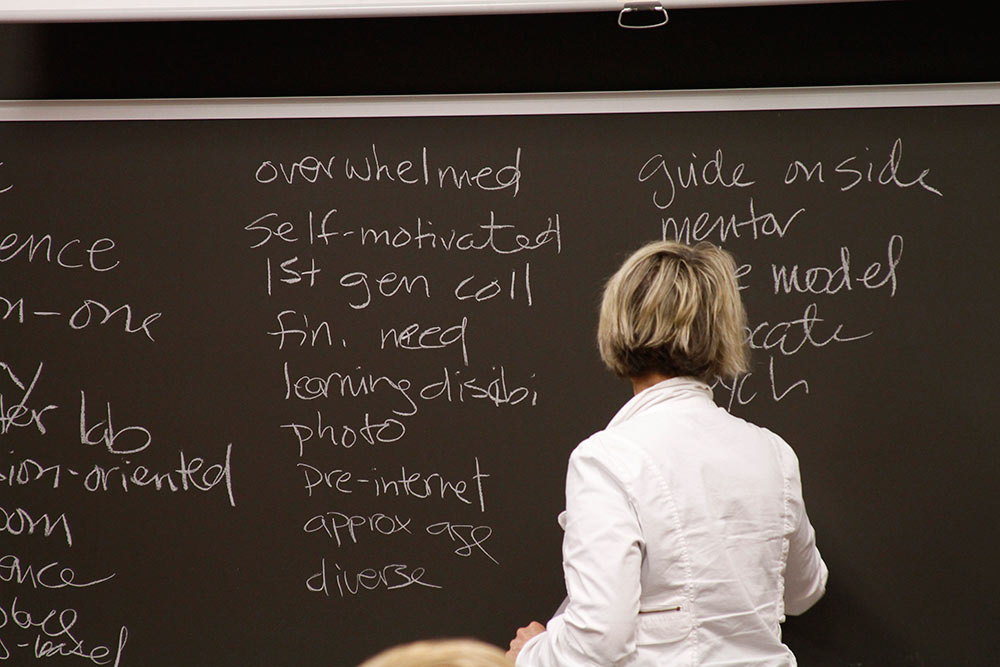
DePaul’s University’s
Liberal Studies Program (LSP) provides students with a well-rounded and intellectually challenging education. The thinking, writing, speaking, and computational skills gained from the combined LSP requirements facilitate successful graduation, and beyond that, enable students to pursue productive careers while being actively engaged in life-long learning. Ultimately, the LSP seeks to educate future leaders who will create a more just and humane world.
Liberal Studies Website
Teaching Experiential Learning Courses (EL)
DePaul students must take an Experiential Learning (EL) course, which provides them the opportunity to engage in the first-hand discovery of knowledge through observation and participation in activities in an unpredictable setting (usually but not always off-campus). Students are asked to reflect on what they have learned about themselves, others, and a larger social context given the connection between course content and their experience. To do this, they may have contact with a community, an international setting, a workforce environment, or take on a role in the classroom or laboratory that is substantively different than that of student, such as model the professional behavior of a researcher or teacher. EL courses range from internships, study abroad, Community-based Service Learning, and Academic Practicum. EL Courses (other than internships) must have at least 25 hours of field-based, experiential contact time. Internships must have at least 100 hours. Stay up to date on
best practices for Experiential Learning courses.
Independent Study for EL Credit
Students may also opt to pursue an independent study for EL credit. Like other EL courses, students in independent studies will be expected to have 25 hours of experiential contact time, and produce a tangible product or artifact reflecting on the relationship of the EL learning outcomes to the independent study in which the student has been engaged.
Students must request a waiver request to have their independent study considered for EL and must demonstrate how they will be meeting the EL learning outcomes.
Teaching in the Domains
The Liberal Studies Program offers over 1,700 sections per quarter, with over half of those coming from the domains: Arts and Literature; Philosophical Inquiry; Religious Dimensions; Scientific Inquiry; Social, Cultural, and Behavioral Inquiry; and Historical Inquiry. It is housed within the College of Liberal Arts and Social Sciences but is a university-wide program to which every college contributes courses and faculty.
LSP Domain Best Practices
When teaching in the domains, instructors should make sure their course syllabus is detailed and includes the learning outcomes for their particular domain. Additionally, instructors should provide graded assignments throughout the quarter (not just at the end), so that students are apprised of their performance.